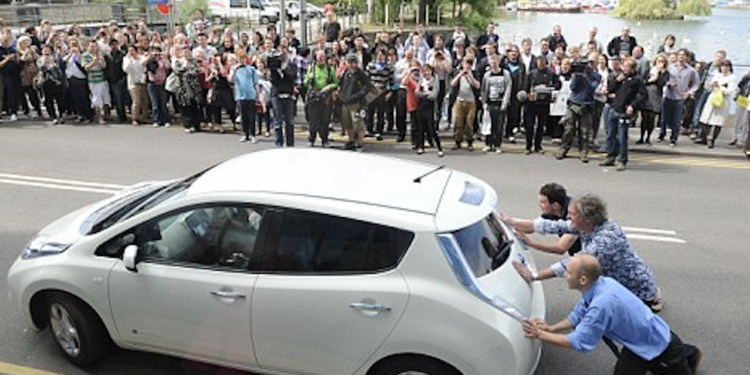Telegraph Money has published an excellent feature today which reads like a submission to the review Chris Skidmore is carrying out on behalf of the Government into whether net zero is being met in an “economically efficient way” and will not place “undue burdens on businesses or consumers”. As Telegraph Money makes clear, it is already placing considerable burdens on businesses and consumers. Here is an extract, breaking down the burden in three different areas:
Home Insulation
Under the race to reach net zero, the Government has said it wants Britain’s housing stock to be much more energy efficient, but the burden of doing so has been laid squarely on property owners.
And as record-high energy bills eat away at household budgets, property buyers have become more discerning about “EPC” ratings.
Every property has an Energy Performance Certificate, ranging from A to G. Homes with a rating from A to C are considered to be energy efficient, while anything below is considered poor. The average rating for a British home is D.
Sellers are facing increasing pressure to invest their money into home upgrades in order to stay competitive. Vendors who have spent money to improve their EPC rating have pocketed 16pc extra on average when selling their home, according to research from the property website Rightmove.
But not all homeowners can afford the upgrades necessary to move up a band. Big upgrades such as insulation improvements cost thousands of pounds. For example, paying for foam insulation in cavity walls for a three-bedroom home would cost £1,200. This could save £285 a year in energy bills at current prices, but this means it would take at least four years to pay off.
Heat pumps are another source of frustration for many homeowners. The Government has committed to heat pumps as the replacement for gas boilers, with a target of 600,000 devices installed each year by 2028. By 2025, gas boilers will be banned from newly built homes, and by 2035 the Government wants to phase out all gas boiler installations.
However, the upfront costs of installing a heat pump versus the cost of installing a gas boiler has put many homeowners off.
Until 2025, homeowners who opt to install a heat pump will receive a £5,000 grant to do so as part of the Government’s Boiler Upgrade Scheme. But installation costs can be in excess of £10,000. Meanwhile gas boiler costs range from £1,000 to £4,000, according to Boiler Guide, a network of gas and heat pump engineers.
Running costs are not always cheaper for heat pumps, either. In June, the Climate Change Committee, an independent Government adviser on tackling climate change, estimated that the cost of running a heat pump was 10% higher than gas.
Petrol- and Diesel-Driven Cars
The Government push towards electric cars has also caused much tension, especially as charging infrastructure across the country is not yet extensive enough to support all drivers. Last year it announced that it would ban the sale of new petrol and diesel cars in 2030, forcing many drivers into expensive decisions.
The average cost of an electric vehicle is £43,896, compared with an overall average £23,185 for a medium-sized car, according to the price comparison website NimbleFins.
However, electric car owners could save money in the long run on petrol, the price for which has rocketed this year. The cost of charging will also be cheaper under Liz Truss’s plan to cap the cost of electricity units.
Energy Bills
Households are currently charged a green levy on energy bills which adds £150 to the average energy bill. The proceeds are used to fund renewable energy subsidy schemes.
Net Zero Watch, a campaign group that monitors the impact of decarbonisation, has estimated that the policy costs the British economy around £11 billion a year, adding a total £250 to the annual cost of living per household.
Liz Truss has pledged to cut the green levy out of energy bills, but it is not clear yet whether this will last beyond the next general election in 2024.
Worth reading in full.












To join in with the discussion please make a donation to The Daily Sceptic.
Profanity and abuse will be removed and may lead to a permanent ban.